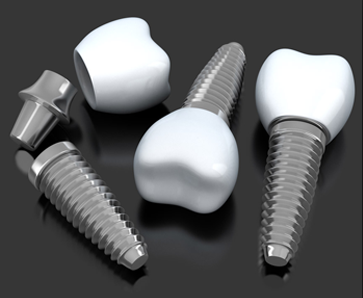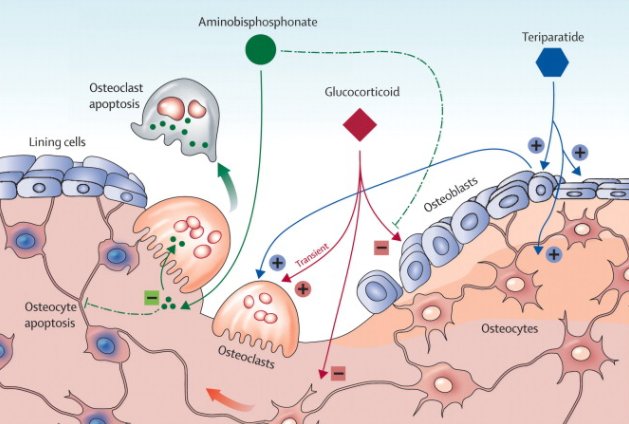.jpg)

Osteoporosis is an age related skeletal disorder characterized by decrease in bone mass & increased deterioration in the micro-architectural structure of bones which make bones more susceptible to fractures.
The detrimental condition mostly affects women after the age of 60 but is even common at an earlier age in postmenopausal women or women with history of ovariectomy due to the lack of estrogen, since bone remodelling is regulated by estrogen & once women enters menopause, estrogen production ceases which leads to an imbalance in bone resorption due to which bone formation exceeds & makes bone more fragile & eventually increases the risk of fracture.
Does Osteoporosis also affect the jawbones?

It’s of significant importance to perceive if osteoporosis exists in the jaw bones or is confined to long bones & vertebrae.
Certainly, it’s a reasonable or probable conjecture to conclude that systemic bone loss via osteoporosis can include jaws bone loss. However, few clinical studies and research by best dentist in Ashok Vihar and around stated that patients with osteoporosis encounter increased alveolar bone resorption than the non-osteoporotic patients.
In addition, most often the bones in the spine, hip & wrist gets affected, but this disorder can affect any bone in the body due to low bone mass.
Can implants be placed in patients with Osteoporosis?

Within the bounds of possibility, osteoporosis lead to alterations in bone metabolism which further impair bone healing around implants & causes interferences in the osseointegration which eventually jeopardizes the implant success.
Despite of such evidences implant therapy is not an absolute contraindication for osteoporotic patients.
In order to assure more predictable outcome, few recommendations need to be fulfilled to successfully place dental implants in patients with osteoporosis. Concomitant risk factors like: deficiency of calcium & vitamin D₃, alcohol abuse, smoking needs to be assessed, since these factors affect the bone metabolism & density.
For patients with calcium & vitamin D₃ deficiency, recommended dose of calcium, which can be range from 800 to 1500 mg/day & regular exercise, is helpful to maintain the bone mass & increase bone strength. Such patients should thoroughly be investigated & treated before implant therapy. And those with smoking & alcohol abuse need to cease the habits, since smoking & alcohol causes a detrimental effect on implants & bone.
Effect of Osteoporosis medications on success of dental implants

Most commonly prescribed medications for osteoporosis are Bisphosphonates. As mentioned before, patients with osteoporosis encounters an imbalance in bone resorption, in order to counteract the imbalance anti-resorptive medications i.e. bisphosphonates are prescribed for osteoporotic patients.
Bisphosphonates reduce the regenerative capacity of bone around the dental implants by inhibiting the formation & activation of Osteoclasts & eventually induces their apoptosis which reduces the bone remodelling & impair the osseointegration.
To add up to your knowledge, it cannot be concluded that dental implants are absolutely contraindicated in such patients. The drug should be stopped for a minimum of 3 months prior to implant surgery & should be restarted at least after 3-4 months of implant surgery.
In order to re-evaluate the risk of osteonecrosis in patients on bisphosphonates for more than 3 years, a blood test & serum C-terminal telopeptide (CTX) test on an empty stomach are recommended.
At Dr. Sachdeva’s Dental Institute, a revered dental clinic in Ashok Vihar considers the risks of implant placement in patients taking bisphosphonates & ensure adequate postoperative control. We believe in educating & motivating our patients regarding dental care & balance the pros & cons of surgical procedure.





